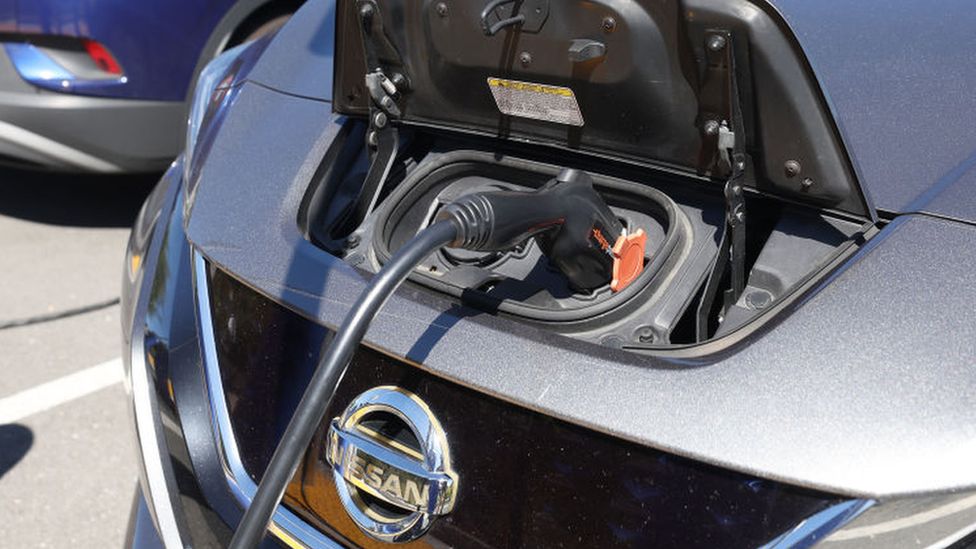Nissan to commit to making new Qashqai and Juke electric models in Sunderland
- Published
- comments

Nissan is to commit to making future electric versions of its two best selling cars in Sunderland.
The Japanese carmaker will announce on Friday that its new electric Qashqai and Juke models will be made at the site, helping to preserve 6,000 jobs.
The investment is thought to be in the region of £1bn and will be supported by a government contribution from the Automotive Transformation Fund (ATF).
The ATF received a £2bn top-up in the Autumn Statement on Wednesday.
Nissan is the only carmaker in the UK with its own dedicated battery plant located close to the car factory. It is owned by Chinese company AESC with Nissan as its only customer.
The battery plant was expanded last year with contributions from the ATF and Sunderland Council, involving about £100m in public money.
Post-Brexit trading rules due to take effect in January next year will trigger a 10% tariff on cars sold between the UK and European Union unless carmakers have sourced 45% of their components by value from the UK or EU.
The rules were designed to protect the European industry from cheap imports.
As batteries are the most expensive part of an electric vehicle, some manufacturers in both the UK and EU have said they will be unable to hit that threshold and have called for the requirement to be deferred.
In May, Stellantis, which owns Vauxhall, Peugeot, Citroen and Fiat, warned it may have to close UK factories if the government did not renegotiate the Brexit deal.
The firm had committed to making electric cars in the UK, but warned that if the cost of electric vehicle manufacturing in the country "becomes uncompetitive and unsustainable, operations will close".
Speaking at the time, Prime Minister Rishi Sunak said the January deadline was "something that car manufacturers across Europe, not just in the UK, have raised as a concern".
But battery packs for Nissan's two most successful models will be made on-site, in the Chinese-owned plant, meaning they will avoid the tariffs.
The firm began producing electric Juke and Qashqai cars in the North East of England last year and has already committed to producing the successor to its Leaf electric car at its factory in Sunderland.
The battery plant next to Nissan's Sunderland factory is the only one currently producing batteries for electric cars in the UK.
Jaguar Land Rover owner Tata plans to build a £4bn factory in Somerset, with production due to start in 2026.
Another proposed battery manufacturer in the North East, Britishvolt, went into administration earlier this year. Australian firm Recharge Industries took control of it in February, but the takeover hasn't gone smoothly, with some £2.5m of the purchase price still unpaid months after it was due.
By contrast the EU has 35 plants open, under construction or planned.
Nissan is exactly the kind of big profitable manufacturer that stands to benefit from the key business tax change that was announced in the Autumn Statement.
Under a policy known as "full expensing", businesses are able to offset 100% of investment in new plant and machinery against profits. The tax relief, which had been due to end in 2026, was made permanent by the chancellor on Wednesday.
In September, Nissan said it would only manufacture electric vehicles by 2030, despite the government postponing a ban on the sale of new petrol and diesel cars that had been due to come in that year to 2035.
The firm's boss Makoto Uchida said at the time it was the right thing to do for its business, customers and for the planet.
Publishing its outlook alongside the Autumn Statement on Wednesday, the Office for Budget Responsibility slashed its prediction for the number of electric cars forecast to be sold in the UK by 2027.
It said that just 38% of new vehicles sold in the UK in 2027 would be electric, lower than the 67% it predicted in March.
Related Topics
- Published25 September 2023
- Published19 July 2023